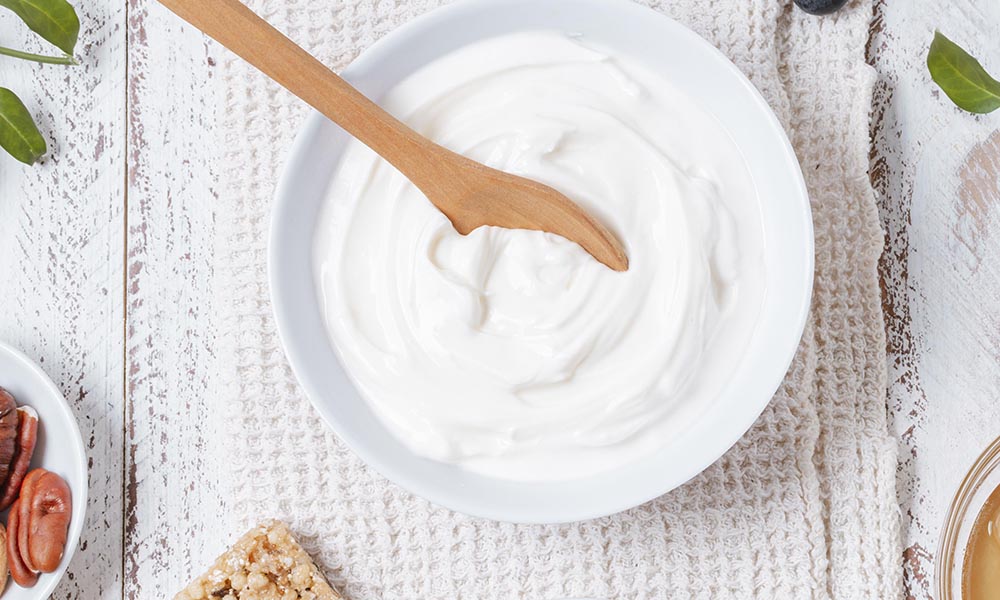Yoghurt lovers, unite! Whether it’s your go-to breakfast, a post-workout snack, or the secret ingredient in your favourite recipes, yoghurt holds a special place in many diets. But have you ever asked yourself, can you eat too much yoghurt? While it’s widely celebrated for its health benefits, consuming it in excess can have some surprising consequences. This blog dives into the creamy world of yoghurt, exploring whether it’s possible to overdo this nutritious staple.
The Amazing Benefits of Yoghurt
Before we tackle whether you can eat too much yoghurt, let’s shine a light on why it’s such a popular choice. Yoghurt is a nutritional powerhouse that offers:
- Probiotics for Gut Health: The live bacteria in yoghurt help maintain a balanced gut microbiome, improving digestion and boosting immunity.
- Bone Health: Rich in calcium and vitamin D, yoghurt strengthens bones and teeth.
- Protein Power: Yoghurt is packed with protein, keeping you full longer and aiding muscle repair.
- Weight Management: Studies suggest that yoghurt can help regulate appetite and support weight loss efforts.
- Nutrient Absorption: Yoghurt helps enhance the absorption of vitamins and minerals, such as magnesium and potassium.
Despite these benefits, the question remains: can you eat too much yoghurt? The answer lies in understanding moderation.
Too Much of a Good Thing: Potential Downsides of Excessive Yoghurt Consumption
As with anything, balance is key. Consuming excessive yoghurt can lead to:
Digestive Discomfort
Even though yoghurt contains less lactose than milk due to fermentation, eating large quantities can still cause bloating, gas, and diarrhoea in those with lactose sensitivity.
Sugar Overload
Many commercial yoghurts are laden with added sugars. Eating too much of these sweetened options can lead to weight gain and an increased risk of diabetes and heart disease.
Acidity and Dental Health
Yoghurt’s natural acidity can erode tooth enamel over time if consumed excessively. Rinsing your mouth with water after eating yoghurt can minimise this risk.
Calorie Concerns
While yoghurt is nutritious, eating too much of even healthy foods can lead to an unintentional calorie surplus, causing weight gain.
Imbalanced Diet
Relying heavily on yoghurt can displace other nutrient-rich foods in your diet, potentially leading to deficiencies in vitamins or fibre.
Can You Eat Too Much Yoghurt? The Role of Moderation
So, can you eat too much yoghurt? Absolutely. The exact threshold varies by individual, but excessive consumption can diminish the benefits yoghurt offers. Here’s what to keep in mind:
- Lactose Sensitivity: If you notice bloating or discomfort, reduce your intake or switch to lactose-free yoghurt.
- Sugar Awareness: Stick to plain, unsweetened varieties and sweeten them naturally with fruit.
- Portion Sizes: The recommended serving size is typically one to two cups per day. Overeating can lead to the issues discussed earlier.
- Dietary Variety: Yoghurt should complement a balanced diet, not dominate it. Pair it with whole grains, lean proteins, and vegetables.
Making Yoghurt Part of a Balanced Diet
Yoghurt is best enjoyed as part of a varied diet. Here’s how to incorporate it without overdoing it:
Choose the Right Type
Opt for plain, Greek, or natural yoghurt with no added sugars. If you’re dairy-free, look for unsweetened coconut or almond-based alternatives.
Monitor Portion Sizes
Stick to serving sizes recommended on the packaging. Typically, a 150-200g tub suffices for one meal or snack.
Get Creative
Instead of eating it straight, try using yoghurt as:
- A base for smoothies
- A healthy substitute for mayonnaise or sour cream
- An ingredient in salad dressings
- A topping for oats or granola
Final Thoughts
So, can you eat too much yoghurt? The answer is a resounding yes. While it’s an incredibly healthy and versatile food, overconsumption can offset its benefits. The key to enjoying yoghurt is balance: pair it with diverse foods, choose unsweetened varieties, and stick to appropriate portion sizes.
Enjoy yoghurt as a delightful addition to your diet, not as a dominant food. By doing so, you’ll reap its benefits without worrying about the drawbacks.
Explore premium-quality yoghurt options at Yo Hayo, your destination for fresh, delicious, and nutritious choices. Contact us today to discover how Yo Hayo can transform your yoghurt experience!
FAQs
-
What’s the difference between frozen yogurt and ice cream?
Frozen yogurt and ice cream differ primarily in their base ingredients. Ice cream is made with cream, which gives it a rich and creamy texture, while frozen yogurt is made with yogurt, resulting in a tangier flavour. Frozen yogurt is typically lower in fat than ice cream because it contains less cream, but it can still be high in sugar. Some frozen yogurts contain live probiotic cultures, which may offer digestive health benefits, unlike ice cream. Both are indulgent treats, but frozen yogurt can be a lighter option when paired with healthy toppings like fresh fruit.
-
Can you eat too much yoghurt, including frozen yogurt?
Yes, eating too much yogurt, including frozen yogurt, can lead to an excess of sugar, calories, and even dairy, depending on the toppings you choose. Many frozen yogurts contain added sugars, especially when flavoured, and pairing them with sugary toppings or syrups can significantly increase your calorie intake. While yogurt is an excellent source of calcium and probiotics, moderation is key. Consuming frozen yogurt regularly in large quantities may also contribute to digestive discomfort for some individuals. Be mindful of portion sizes, and consider healthier toppings like fruit, nuts, or seeds to balance out the treat.
-
Is self-serve frozen yogurt safe for people with dietary restrictions?
Many self-serve frozen yogurt shops cater to a variety of dietary restrictions by offering options like dairy-free, gluten-free, or sugar-free frozen yogurt. It’s essential to check the ingredients and nutrition information provided by the shop, as some toppings may still contain allergens like nuts, gluten, or dairy. If you have severe allergies, it’s always a good idea to ask staff about cross-contamination risks. Additionally, some places may offer non-dairy bases such as coconut, almond, or soy milk, which are suitable for those with lactose intolerance or vegan diets. Always make sure to choose carefully to suit your needs.
-
What’s the best way to control portion size at a self-serve frozen yogurt shop?
Controlling portion size at a self-serve frozen yogurt shop can be a bit tricky, but there are strategies that can help. Start with a smaller cup size, which will naturally limit how much yogurt you can serve yourself. When adding toppings, avoid overloading your cup; stick to a few options to maintain balance. You can also try layering toppings instead of piling them on top. Don’t be afraid to stop and assess the size of your cup before going overboard. If you’re unsure, start small and, if you’re still hungry, go back for a little more.
-
Are there seasonal frozen yogurt flavours?
Yes, many frozen yogurt shops introduce seasonal flavours to add a festive twist to their offerings. During autumn, you might find pumpkin spice or caramel apple flavours, while winter may bring peppermint or gingerbread options. These flavours are often limited-time offerings designed to celebrate the season and entice customers with something new. Seasonal toppings can also complement these flavours, such as spiced nuts or holiday-themed candies. Keep an eye out for these special releases, as they’re a fun way to enjoy frozen yogurt in a unique and seasonal way. Ask staff about the latest seasonal flavours and limited editions.





